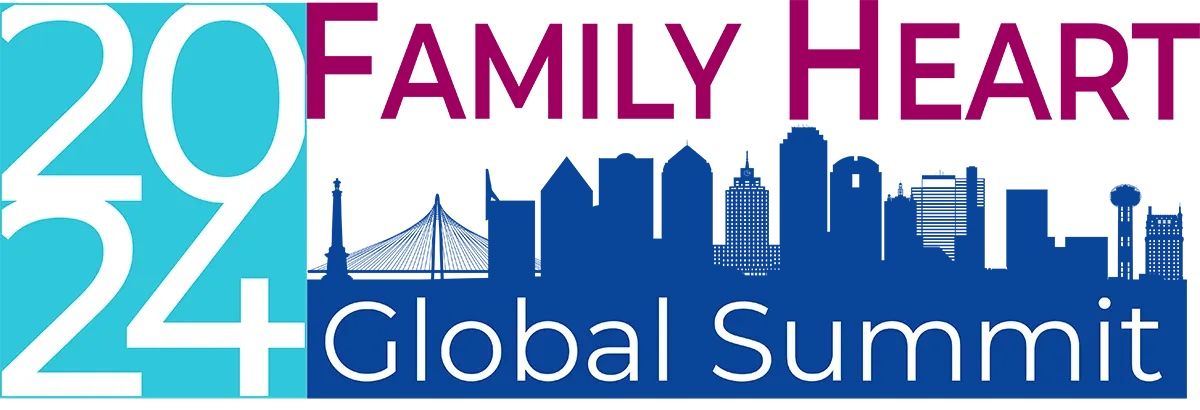- Center on Health Equity & Access
- Clinical
- Health Care Cost
- Health Care Delivery
- Insurance
- Policy
- Technology
- Value-Based Care
Bringing Together Science and the Lived Experience at Family Heart Global Summit
The 10th annual meeting of the Family Heart Global Summit will bring together leading scientists and practitioners with patients to discuss treatment of inherited lipid disorders.
In an age of novel therapies and new strategies to prevent cardiovascular diseases, additional innovation to treat inherited lipid disorders is helping grow momentum. However, there remain significant barriers to delivering effective care and innovative approaches. At the 2024 Family Heart Global Summit, a wide variety of stakeholders will convene to discuss treatment of inherited lipid disorders to reduce the burden of cardiovascular disease.
The theme of the 10th annual meeting, which will be held September 22-24, 2024, in Dallas, Texas, is “The Golden Age of Lipid Lowering: From Innovation to Impact.” Not only will the meeting evaluate the rapidly evolving landscape of lipid management, but it will also highlight how to apply these advancements to real-world care.
The 10th annual meeting of the Family Heart Global Summit will bring together leading scientists and practitioners with patients to discuss treatment of inherited lipid disorders.
Image credit: Family Global Heart Foundation

The meeting is chaired by Christie Ballantyne, MD, of Baylor College of Medicine; Fatima Rodriguez, MD, MPH, of Stanford Medicine; and Laurence Sperling, MD, of Emory School of Medicine, and it will kick off on day 1 with a look at the progress made over the last 50 years in familial hypercholesterolemia.
“This meeting is really a unique culmination each year of the work being done related to people living with genetic cholesterol disorders, familial hypercholesterolemia, and elevated lipoprotein(a) [Lp(a)],” Sperling said in an interview with HCPLive®.
In addition to leading scientists and providers, the meeting brings the lived experience with people who have familial hypercholesterolemia and elevated Lp(a), he added.
The first session features Nobel Laureates Michael Brown, MD, and Joseph Goldstein, MD, both currently at University of Texas Southwestern Medical Center, who received the Nobel Prize in Physiology or Medicine in 1985 “for their discoveries concerning the regulation of cholesterol metabolism.”1 Their discovery of the low-density lipoprotein cell receptor and their understanding of how cholesterol conversion is regulated, has formed the basis for medicines that reduce cholesterol, such as statins.2
Following the discussion with Brown and Goldstein on “The Role of Familial Hypercholesterolemia in the Elucidation of the LDL Receptor,” will be an update on the Family Heart Foundation Progress Report on familial hypercholesterolemia in America and a keynote lecture from Helen H. Hobbs, MD, of University of Texas Southwestern Medical Center, on the discovery of proprotein convertase subtilisin/kexin type 9 (PCSK9) inhibitors.
Hobbs, who helped spearhead research that propelled the development of PCSK-inhibiting drugs for lowering low-density lipoprotein cholesterol (LDL-C),3 is also this year’s Family Heart Pioneer Award winner.
On day 2, there are 6 sessions covering LDL-C control, technological innovation, pediatric screening, Lp(a), and the population health challenge of familial hypercholesterolemia and Lp(a).
There will also be a second keynote lecture, “From LDL-C to Lp(a): Those That Fail to Learn From History Are Doomed to Repeat It,” from Steven Nissen, MD, of Cleveland Clinic and Case Western Reserve University.
“This truly is the ‘golden age’ as we look back on the past 50 years of discovery, innovation, [and] development of really exciting and impactful pharmacotherapies, [and] the ability to identify those [patients] at increased cardiovascular risk to treat them early and to make an impact on their lives and their life course in a favorable has never been better,” Sperling said.
References
1. The Nobel Prize in Physiology or Medicine 1985. NobelPrize.org. Accessed August 20, 2024. https://www.nobelprize.org/prizes/medicine/1985/summary/
2. Joseph L. Goldstein—Facts. NobelPrize.org. Accessed August 20, 2024. https://www.nobelprize.org/prizes/medicine/1985/goldstein/facts/
3. Nair P. QnAs with Helen H. Hobbs and Jonathan C. Cohen. PNAS. November 1, 2023. Accessed August 21, 2024. https://www.pnas.org/doi/10.1073/pnas.2316245120
Quality of Life: The Pending Outcome in Idiopathic Pulmonary Fibrosis
February 6th 2026Because evidence gaps in idiopathic pulmonary fibrosis research hinder demonstration of antifibrotic therapies’ impact on patient quality of life (QOL), integrating validated health-related QOL measures into trials is urgently needed.
Read More
